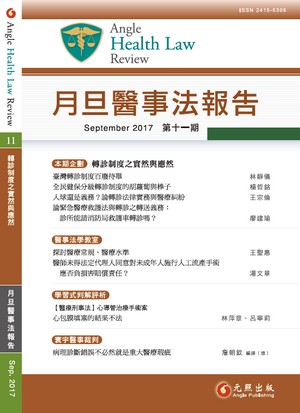全民健保分級轉診制度的胡蘿蔔與棒子【本期企劃】 試閱
The Regulatory Carrots and Sticks of the Referral System under the National Health Insurance
臺灣全民健康保險實施時,就將「轉診制度、分級醫療」的精神納入全民健康保險法之中。但自全民健康保險開辦以來,一直成效不彰,結果就是不分輕重病,病人擠爆了醫學中心,造成醫療資源浪費及急診室擁擠等現象。若要以法律管制架構來誘導民眾的就醫行為,不外乎是誘因或處罰(亦即英文諺語俗稱的胡蘿蔔和棒子),本文嘗試分別由被保險人及醫療機構的角度,比較國際上的做法,來探討有哪些法律制度是臺灣全民健康保險還欠缺的。
After the implementation of the National Health Insurance (NHI), the spirit of referral and levels of care has been included in the NHI Act. But the results have not been satisfactory. Patients regardless of severity swarm to medical centers, which causes waste of medical resources and crowdedness of the emergency rooms. When regulatory control framework is used to guide the general public’s healthcare seeking behaviors, the tools are either incentives or punishment, which are as in English expression carrots and sticks. This article aimed at exploring whether there are regulatory mechanisms internationally that the NHI is still lacking from the perspectives of the insured and medical institutions separately.
019-030






